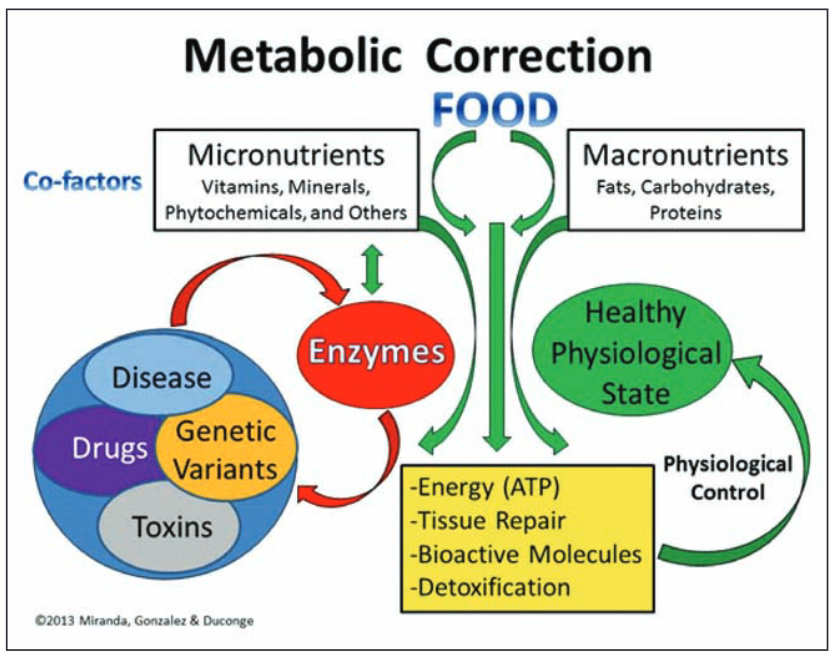Many of us need a metabolic tune-up, whether we know it or not. Consuming adequate amounts of vitamins and minerals to prevent outright diseases such as scurvy, anemia, or beriberi doesn’t mean we are getting optimal amounts.
Consuming less than optimal amounts of these micronutrients and other dietary cofactors, including phytonutrients, may lead to subtle biochemical changes that can eventually cause metabolic dysfunction, cognitive decline, chronic disease, and even DNA damage.
For example, insufficiency of vitamins C, E, B3, B6, B12, folate, zinc, or iron can mimic the damage that radiation causes to DNA, including single and double-strand breaks (Ames 2005).
Suboptimal micronutrient intake can also contribute to insomnia, difficulty concentrating, lethargy, irritability, depression, anxiety, susceptibility to disease, and compromised recovery from exercise and surgery. Non-vitamin/mineral metabolic cofactors are important as well, including CoQ10 and lipoic acid (Miranda-Massari 2015).
A diet abundant in whole, unprocessed foods, fruits, vegetables, and other plant-based high-antioxidant foods, along with a comprehensive and well-balanced vitamin-mineral supplement, can help fill in the gaps and provide that metabolic tune-up you may not even know you needed!

Source: González, Michael J et al. “Metabolic correction: a functional biochemical mechanism against disease--Part 1: concept and historical background.” Puerto Rico health sciences journal vol. 34,1 (2015): 3-8.
Ames, Bruce N. “Increasing longevity by tuning up metabolism. To maximize human health and lifespan, scientists must abandon outdated models of micronutrients.” EMBO reports vol. 6 Spec No,Suppl 1 (2005): S20-4. doi:10.1038/sj.embor.7400426
Ames, Bruce N. “A role for supplements in optimizing health: the metabolic tune-up.” Archives of biochemistry and biophysics vol. 423,1 (2004): 227-34. doi:10.1016/j.abb.2003.11.002
Ames, Bruce N. “The metabolic tune-up: metabolic harmony and disease prevention.” The Journal of nutrition vol. 133,5 Suppl 1 (2003): 1544S-8S. doi:10.1093/jn/133.5.1544S
González, Michael J et al. “Metabolic correction: a functional biochemical mechanism against disease--Part 1: concept and historical background.” Puerto Rico health sciences journal vol. 34,1 (2015): 3-8
Miranda-Massari, Jorge R et al. “Metabolic correction: a functional biochemical mechanism against disease--Part 2: mechanisms and benefits.” Puerto Rico health sciences journal vol. 34,1 (2015): 9-13.